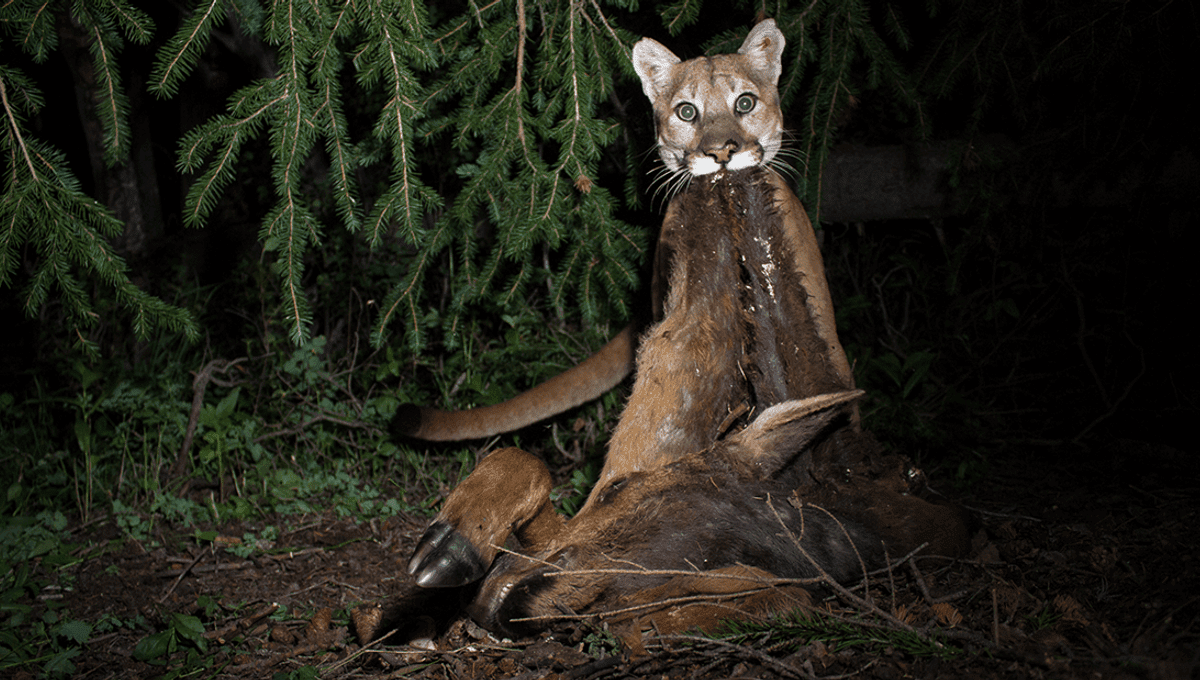
Mountain lions (Puma concolor), aka pumas, might have a reputation for a lot of things, but gardening isn’t typically one of them. Now, new research has revealed that nutrients deposited in the soil from mountain lion kills may help improve plant quality and therefore attract ungulates to feed in these areas, helping the mountain lions ambush them in their preferred hunting habitat in a technique known as “garden to hunt”.
In the Teton Mountain range, part of the Greater Yellowstone Ecosystem in Wyoming, USA, 12 mountain lions were studied. It was estimated that, together, they produced an annual prey mass of over 100,000 kg (220,462 lbs) of carrion, equivalent to a blue whale.
By using GPS collars, the team was able to identify sites where mountain lions had killed ungulates, and then collect and analyze 1,007 soil samples from around the 172 kill sites. Plant samples were also taken from 65 sites.
The team not only found that the kill sites were associated with an increase in nutrients in plants and soil, but the kills were only found in a tiny section of the mountain lion’s total range. It is estimated that over a nine-year lifespan, each mountain lion created around 482 hotspots of soil that had increased nutrients thanks to the decomposing kills. These are areas conducive to the mountain lion’s favorite method of hunting – the stalk and ambush strategy.
“Each study and glimpse into the secret lives of pumas reveals that their behaviors and contributions to nature are far more complex than imagined. Pumas contribute over a million kg of meat to ecosystems every day, improving the quality of soil and plant life, feeding hundreds of species, and supporting the health of their ecosystems and our planet’s overall web of life,” said Panthera Puma Director Dr Mark Elbroch in a statement.
The results showed that mountain lions have a preference when it comes to the areas they make kills. They were more likely to make kills in habitats that were low elevation, with steeper slopes, high tree canopies, and close to areas like forest edges, roads, and streams. The favorite type of mountain lion habitat for making successful kills was deciduous forest. These preferred areas represent just 4 percent of the total study area.
The results show that the carcasses from kills made by mountain lions impact the nutrients – particularly the nitrogen content – in the plants and soil of the areas where the carcasses decompose. This in turn gives local plants more nitrogen to absorb, leading to changes in chemistry and increased protein content, making these plants more attractive to herbivores.
The team plans to further investigate whether herbivores prefer to forage in areas that have been previous kill sites, and thus begin the cycle all over again.
“To those who care for the well-being of wildlife and the wild habitats sustaining all living beings, these findings yet again demonstrate the value and need to conserve the Americas’ pumas.” finished Elbroch.
The paper is published in Landscape Ecology.
Source Link: Mountain Lions Fertilise Their Gardens With Carcasses To Attract Prey